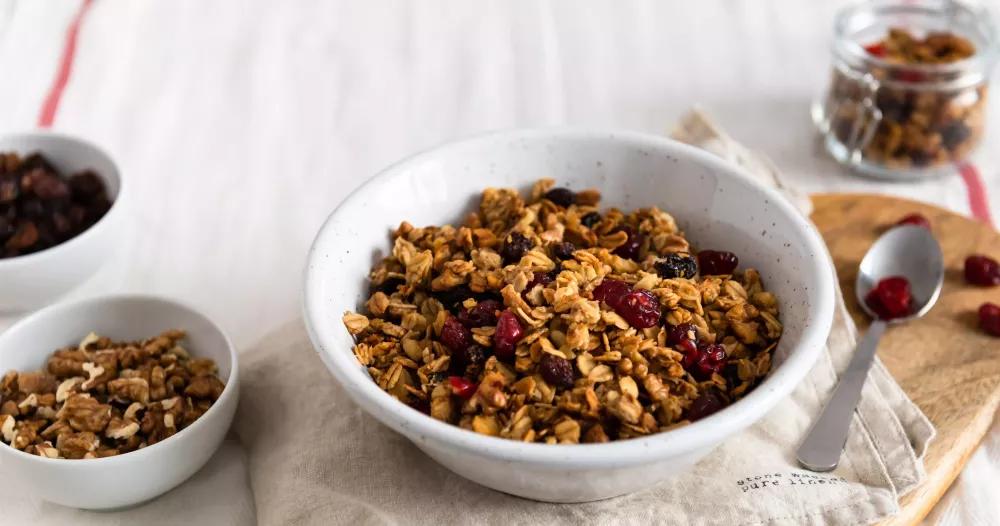Which foods to choose against constipation? | Health Magazine
Are you still constipated and want to put an end to this transit disorder that bothers you on a daily basis? Changing eating habits can be a solution. The point on foods to favor.
As one in two women, you may be suffering from constipation. Clearly, you notice less than three bowel movements per week; a solid, even hard, stool consistency; an absence of colonic cravings or spasms; and your complexion turns gray-earthy.
Constipation is difficulty passing stools. It results either in a need to have a bowel movement without result (spasmodic constipation), or in the absence of the desire to have a bowel movement (atonic constipation), and is accompanied by pain, heaviness, bloating. It is considered that there is constipation when the frequency of stools is less than 3 per week.
What caused this problem? A family tendency to constipation, stress or embarrassment at the idea of not being at home (traveller's constipation), but also contributing factors, such as a lack of fibre, too little water consumption, or even a lack of physical exercise. So many parameters that can easily be adjusted, provided you adopt the right habits.
Diversify dietary fiber sources
Eating more fiber can relieve constipation by increasing stool bulk and making it easier to pass. “Try to consume 30 g of fiber a day,” advises dietician Thérèse Ferrari. To reach the 25 g to 30 g of daily fiber recommended by the National Food Safety Agency (source 1), we focus on fresh vegetables and fruits, but also on whole foods rather than refined ones: we swap cereals, white breads for wheat bran, wholemeal bread, wholegrain cereals (bulgur, quinoa, wholemeal pasta, buckwheat, barley, etc.), oatmeal, oat bran, muesli.
What fruits to eat when you are constipated?
Dietitian Julie Delorme recommends consuming one or two extra servings of fruit, especially kiwis (2.4g/100g)* or prunes (5.1g/100g), which also have a laxative effect of their own. Apples (1.3g/100g), plums (1.5g/100g), passion fruit (6.8g/100g), raspberries (4.3g/100g), blackberries (5.2g/100g), currants ( 4.6g/100g), guavas (5.15g/100g), grapes (1.4g/10g), oranges (2.7g/100g), etc will also work.

Dried fruits (apricots, prunes, figs, etc.) and oleaginous fruits (almonds, walnuts, hazelnuts, etc.) are also good options.
What vegetables to eat in case of constipation?
Also bet on vegetables rich in fiber such as leeks (3.4g/100g), celery (1.6g/100g), fennel (2g/100g), green beans (3, 2g/100g), lettuce (1.2g/100g), peas (5.8g/100g), cabbage (2g/100g), turnips (2.1g/100g), artichokes (8.3g /100g), salsify (3.1g/100g), konjac, etc.
Another major source of interesting fibre: pulses (lentils, white or red beans, chickpeas, etc.) which contain on average 10 to 15% vegetable fibre.
The problem is that many foods contain both soluble fiber, which is sweet, and insoluble fiber, which is irritating. "You must therefore always gradually increase your fiber intake, on the basis of an additional portion per two-day period", specifies Dr. François Mion, gastroenterologist.
How many liters of water to drink each day?
Drinking the recommended 1 to 1.5 liters of water per day should ensure stools of normal consistency. “There is no point in drinking even more water if you are constipated despite everything,” says Professor Jean-Marc Sabaté, gastroenterologist.
"Mineral waters, such as Hépar, Courmayeur or Contrex accelerate intestinal transit through the laxative effect of magnesium", adds Julie Delorme, dietician-nutritionist. The golden rule? Do not wait to be thirsty to drink! Small amounts spread throughout the day will ensure optimal hydration.
Betting on fresh fruits and vegetables, soups, or herbal teas (in reasonable quantities), also makes it possible to supplement your water intake.
Coffee, tea and soft drinks should be avoided.
Take mild laxatives
These have the advantage of not irritating the intestinal mucosa. Osmotic laxatives soften the stool by calling on water in the intestine (lactulose, macrogol, lactilol, etc.). So-called "bulk" laxatives, such as psyllium or ispaghul, swell in the intestine and increase stool volume. Taken in the morning, they usually take 24 hours to work. Ask your doctor or pharmacist.
What foods to avoid in case of constipation?
Some foods are more constipating than others. It is therefore better to limit their consumption, or even remove them from the diet for a while. We will therefore avoid:
Beware of raw vegetables that are too tough! If you suffer from bloating, choose cooked vegetables, which are easier to digest.
Do a gentle endurance activity
Physical activity stimulates intestinal transit, especially when the abdominal muscles are solicited.
Be sure to have sufficient physical activity, especially gentle endurance: swimming, cycling, running, and anything that strengthens the abdominal strap... If possible, take a short walk digestion after meals.
A typical day of menus to fight against constipation
The dietician Thérèse Ferrari, author of 120 gourmet recipes for your digestive comfort (ed. Grancher), gives us her advice for adopting an anti-constipation diet on a daily basis.
The ideal anti-constipation breakfast:
The ideal anti-constipation breakfast:
The ideal anti-constipation snack:
The ideal anti-constipation dinner:
If, despite these dietary changes, you do not notice any improvement, a consultation with the doctor is essential.
In video: How to be less constipated thanks to plants?
Treating constipation with essential oils
Those that work well are the essential oils of ginger, tarragon and tropical basil.
Massage the belly in a clockwise direction with a mixture of 2 drops of essential oil (of your choice) diluted in a dab of vegetable oil (that of apricot kernel promotes the tonic action in the level of the intestines).
* Ciqual Table of nutritional composition of foods, Anses
Source 1: "Update of PNNS benchmarks: revision of food consumption benchmarks", ANSES opinion, December 2016








